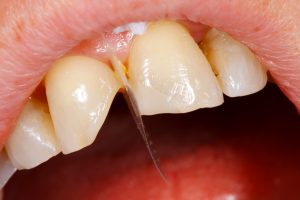For many people, pet allergies are a real problem. In fact, according to the Asthma and Allergy Foundation of America, as many as 15% of Americans are allergic to animals. If you’re one of the millions of Americans who suffer from allergies, don’t despair—there are several things you can do to minimize your symptoms and make living with your furbabies much more manageable.
1. Clean your home
Cleaning your home is one of the best ways to keep pet allergies at bay. Regularly dusting and vacuuming can help reduce allergens in your home and keep surfaces free from pet hair and dander. Vacuuming with a HEPA filter vacuum cleaner specifically designed for pet owners can help capture and trap pet dander, hair, and other allergens that can cause symptoms.
Additionally, it’s important to wash any pet bedding regularly in hot water and to use an anti-allergen laundry detergent. You should also avoid leaving pet food out for long periods as this can attract dust mites, triggering allergies. Lastly, keep your pets out of certain areas in your home where you know allergies tend to flare up. This can help limit the amount of pet dander and hair accumulating in the area.
If cleaning your home is too much for you and causes your allergies to flare up, it’s best to hire deep cleaning services instead. Deep cleaning services are designed to clean your home thoroughly, including removing pet dander and hair from areas that are difficult to reach. This can help reduce allergies and make your home safer for you and your family.
2. Regularly get your pet groomed
Regularly getting your pet groomed is another way to reduce the number of allergens in your home and help keep allergies at bay. Professional grooming can help remove any excess fur, dander, and other allergens from your pet’s coat. Not only will it make your pet look and smell better, but it can also help prevent these allergens from ending up on furniture, clothing, or carpets in your home.
Regular brushing with a brush specifically designed for pets can also help reduce shedding and minimize the number of allergens transferred around the home. If you’re struggling with allergies, you may even consider having your pet shaved, as this can drastically reduce allergic reactions while keeping their fur looking beautiful. Lastly, you must make sure you use a pet shampoo designed to help reduce allergens, as some shampoos can worsen allergies.
Here are the best pet shampoos to manage allergens:
- All Natural Hypoallergenic Pet Shampoo
- Vet’s Best Hypoallergenic Dog Shampoo
- Earthbath Oatmeal & Aloe Pet Shampoo
- Bacon and Egg Dog Shampoo
- Natural Pet Care No Rinse Waterless Slicker Shampoo
3. Use air purifiers

As any pet owner knows, keeping a home clean and allergen-free is hard without an air purifier. Air purifiers filter dust, pollen, dander, and other allergens from the air, making it cleaner and fresher. Look for an air purifier with a HEPA filter, as these are proven effective at trapping and removing allergens from the air.
Additionally, purifiers with activated carbon filters effectively reduce pet odors. Place your purifier in any room where you and your pet spend a lot of time, and make sure to change the filter regularly per the instructions on the device. This will ensure that it is consistently working its best to keep allergens under control and keep you from having allergic reactions.
Here are some of the best air purifiers in the market today and their prices:
- Honeywell HPA300 True HEPA Allergen Remover ($238)
- Medify Air MA-112 V2.0 H13 Medical Grade Air Purifier ($329)
- Levoit Core 300 True HEPA Air Purifier ($140)
- Winix 5500-2 Air Purifier ($121)
4. Keep your pet out of the bedroom
Keeping your pet out of the bedroom effectively reduces allergens in your home and helps keep allergies at bay. The bedroom is often a hotspot for allergens, as it’s where you spend most of your time sleeping. Pet hair, dander, and other allergens can quickly accumulate on furniture, carpeting, and bedding in the room. This can cause symptoms like sneezing, coughing, watery eyes, and congestion.
By keeping your pet out of the bedroom or limiting their visits to short stays only, you can drastically reduce the amount of pet allergen exposure you experience while you sleep. Additionally, wash any bedding regularly in hot water and use an anti-allergen detergent to keep allergens down even further. This will ensure you get a good night’s rest free from pet allergens.
5. Visit an allergist
Visiting an allergist is another way to help manage pet allergies and keep them under control. An allergist can provide you with an accurate diagnosis and comprehensive treatment plans tailored to your needs. Allergy testing can be used to identify which allergen is causing the reaction and what type of management strategies are most effective for your situation.
The allergist will also recommend ways to minimize exposure to the allergen, such as avoiding certain areas where the allergen may be present or using air filters in your home. Additionally, the allergist may prescribe medications such as antihistamines or corticosteroids to reduce symptoms and make it easier for you to cope with pet allergies. In some cases, immunotherapy might even be recommended to help desensitize your body to the allergen. Immunotherapy will allow you to safely reduce your reliance on medications and live a healthier, more comfortable life.
In Closing
Living with allergies can be challenging, but it doesn’t have to be impossible. With the right approach and proper precautions, you can still own a pet and keep your allergies under control. The tips above are all effective ways to minimize exposure to allergens and reduce the severity of your reactions.













